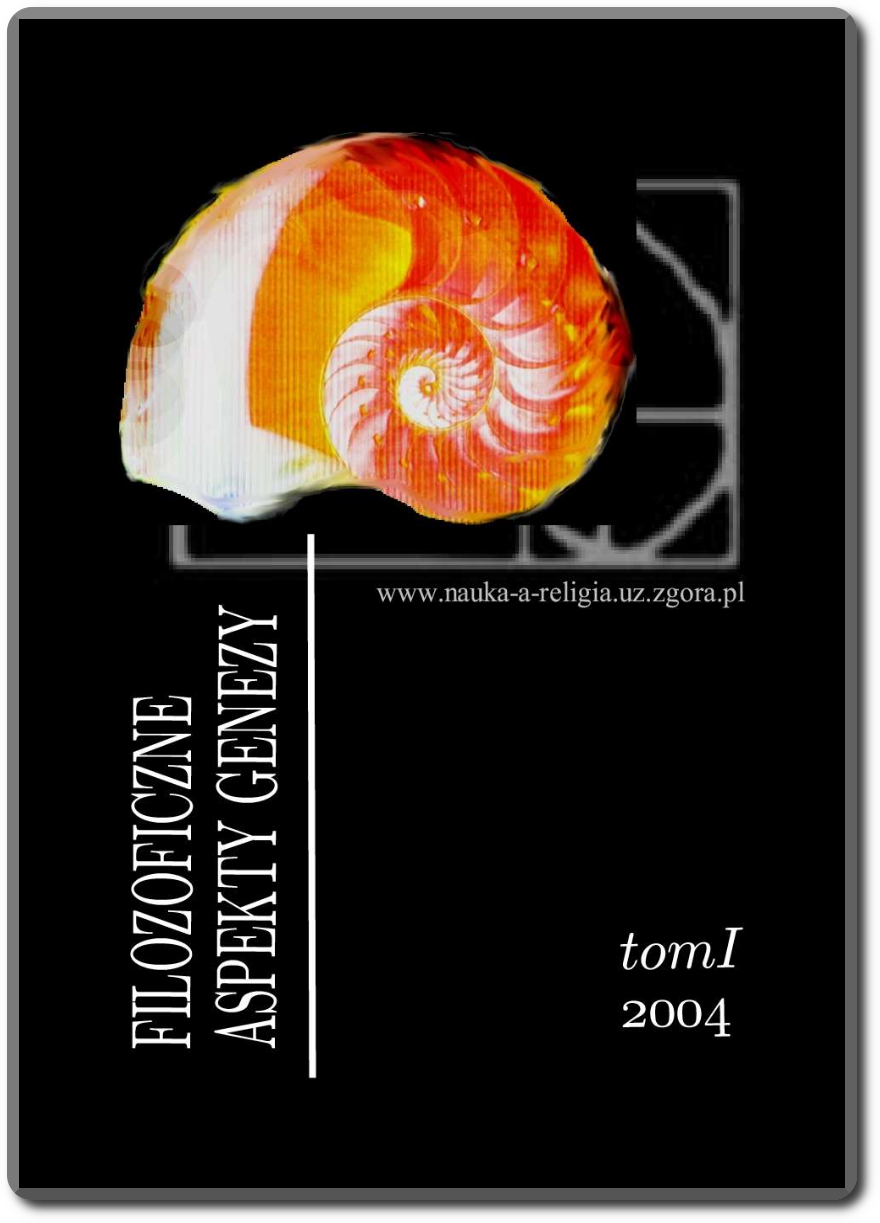Opublikowane 21.05.2021
Słowa kluczowe
- falsyfikowalność,
- nieredukowalna złożoność,
- Darwinizm,
- inteligentny projekt,
- cud
- wnioskowanie o projekcie,
- wić bakteryjna ...More

Utwór dostępny jest na licencji Creative Commons Uznanie autorstwa 4.0 Międzynarodowe.
Jak cytować
Abstrakt
Autor jest zwolennikiem teorii inteligentnego projektu, która - w jego ujęciu - głosi, że pewne systemy biochemiczne zostały zaprojektowane przez jakiegoś inteligentnego projektanta. Rozpatruje kwestię falsyfikowalności tej teorii. Stara się usunąć nieporozumienia związane z pojęciem nieredukowalnej złożoności (nieredukowalna złożoność to cecha, dzięki której - według Behe'ego - można poznać, czy dany układ biochemiczny został zaprojektowany). Autor zastanawia się też nad słusznością postulowania naturalizmu metodologicznego w naukach przyrodniczych i opowiada się ostatecznie za stanowiskiem przeciwnym.
Downloads
Bibliografia
- Behe M.J., Darwin’s Black Box: The Biochemical CHAllenge to Evolution, The Free Press, New York 1996. "Michael J. Behe
- mjb1@Lehigh.edu
- Lehigh University"
- Davies P.C.W., The Fifth Miracle: The Search for the Origin and Meaning of Life, Simon & Schuster, New York 1999.
- Denton M.J., Nature’s Destiny: How the Laws of Biology Reveal Purpose in the Universe, Free Press, New York 1998.
- National Academy of Sciences, Science and Creationism: A View from the National Academy of Sciences, National Academy Press, Washington, DC. 1999.
- Coyne J.A., „God in the details”, Nature 1996, vol. 383, s. 227-228.
- Doolitle R.F., „A delicate balance”, Boston Review, luty/marzec 1997, s. 28-29.
- Miller K.R., Finding Darwin’s God: A Scientist’s Search for Common Ground Between God and Evolution, Cliff Street Books, New York 1999.
- Bugge T.H., Kombrinck K.W., Flick M.J., Daugherty C.C., Danton M.J., and Degen J.L., „Loss of fibrinogen rescues mice the pleiotropic effects of plasminogen deficiency”, Cell 1996, vol. 87, s. 709-719.
- Hall B.G., „Experimental evolution of Ebg enzyme provides clues about the evolution of catalysis and to evolutionary potential”, FEMS Microbiology Letters 1999, vol. 174, s. 1-8.
- Flietstra R.A., „A response to Michael Behe”, Books & Culture, wrzesień/ październik 1998, s. 37-38.
- Orr H.A., „Darwin v. intelligent design (again)”, Boston Review, grudzień/styczeń 1996/1997, s. 28-31.
- Gross P.R., „The disent of man”, Wall Street Journal, 30 lipca 1996, s. A12.
- Futuyma D.J., „Miracles and molecules”, Boston Review, luty/marzec 1997, s. 29-30.
- Ussery David, „A biochemist’s response to The Biochemical CHAllenge to Evolution”, Bios 1999, vol. 70, s. 40-45.
- Weber Bruce, „Irreducible complexity and the problem of biochemical emergence”, Biology & Philosophy 1999, vol. 14, s. 593-605.
- Shapiro J.A., „A third way”, Boston Review, luty/marzec 1997, s. 32-33.
- Shanks Niall and Joplin Karl H., „Redundant complexity: A critical analysis of intelligent design in biochemistry”, Philosophy of Science 1999, vol. 66, s. 268-282.
- Behe M.J., „Self-organization and irreducibly complex systems: A reply to Shanks and Joplin”, Philosophy of Science 2000, vol. 67, s. 155-162.
- Pennock R., Tower of Babel: The Evidence Against the New Creationism, MIT Press, Cambridge, Massachusetts 1999.
- Behe M.J., „The God of Science: The case for intelligent design”, The Weekly Standard, 7 czerwca 1999, s. 35-37.
- Maddox John, „Down with the Big Bang”, Nature 1989, vol. 340, s. 425.
- Orr H.A., „H. Allen Orr responds”, Boston Review, luty/marzec 1997, s. 35-36.
- Dembski W.A., The Design Inference: Eliminating Chance Through Small Probabilities, Cambridge University Press, Cambridge 1998.
- Dembski W.A., Intelligent Design: The Bridge Between Science and Theology, Inter- Varsity Press, Downers Grove, Illinois 1999.
- Ruse M., „Enough speculation”, Boston Review, luty/marzec 1997, s. 32-33.
- Crick Francis and Orgel L.E., „Directed panspermia”, Icarus 1973, vol. 19, s. 341-346.
- Futuyma D.J., Science on Trial, Pantheon Books, New York 1982.
- Pomiankowski A., „The God of the tiny gaps”, New Scientist, 14 września 1996.
- Blackstone N.W., „Argumentum ad ignorantiam”, Quarterly Review of Biology 1997, vol. 72, s. 445-447.
- Copi I.M., Introduction to Logic, Macmillan, New York 1953.
- Lipsitch M., „Fighting an evolutionary war”, Forward, 25 października 1996, vol. 9.



